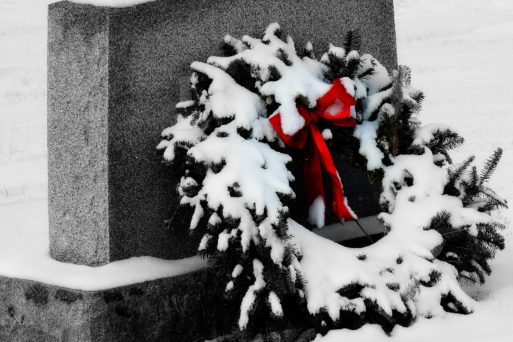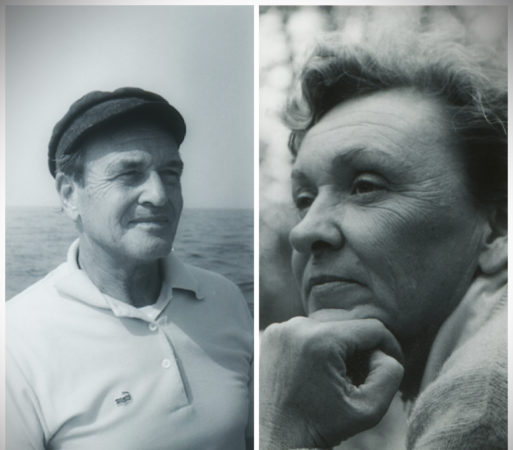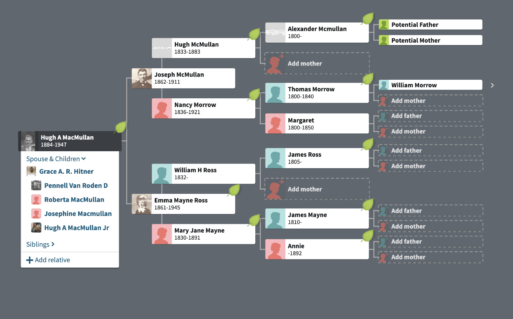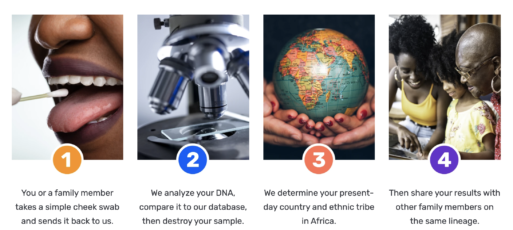Do you ever find yourself praying to a dearly departed loved one, asking for guidance and support? There is a part of me that believes my grandparents’ spirits are watching over me as I trip along the bumpy road of life. In return for their kind assistance, I visit their graves regularly and learn more about their lives. When I keep them present in my thoughts, I feel more connected to the great web of life. I am stronger in my own identity, purpose and belonging. My relationships with dead relatives have even evolved as I’ve been granted the perspective of time and more information.
Unearthing Your Roots
The family we’re born into is the foundation of our identity, whether it is a biological or an adopted one. Some grow up without ever knowing their biological family. In both cases, there is still a rich network of ancestral connection that can be explored. Say what you will about technology (we’ve all had our fair share of frustration), modern digital culture does present many ways to learn about and honor our loved ones. We can trace our family roots, create digital photo frames, find graves all over the world, get our DNA tested, and share oral histories, all with the click of a button. Here are a few tools I found useful while digging for my family history.
Ancestry.com
If you’re interested in your genealogy, Ancestry.com is a great jumping off point. Launched in 1997, the online family history resource now has an extensive collection of over 30 billion records. There are more than 3 million paying subscribers, so once you start creating your family tree, you can connect with other subscribers and share information and hints during your search.
Personally, tracing my ancestry through Ancestry.com has been an incredible treasure hunt! Having access to original documents like immigration records has helped me paint a picture of what life was like for my relatives. I imagine the grit it took my Scots-Irish ancestors to weather the Transatlantic journey aboard the steamship Circassia in 1880. Peering at the cursive writing of many of these old documents may require reading glasses, but it is worth the effort to be transported to the very moment of a loved one’s birth or death.

Original documents provide precious clues, like this 1900 Census Report showing my great great grandfather Joseph was a machinist.
Public Records
Some original documents also list occupation, which is helpful when sifting through possible relations with the same name. It’s affirming to find a connective thread that ties directly to your own skills and hobbies. For example, I worked as a gardener for many years before learning that this love of the land was in my very blood. Ancestors with the occupation “farmer” appeared repeatedly during my search. I certainly did not get the “machinist” genes, however.
DNA testing
As for DNA, the sister site AncestryDNA has collected 20 million genetic sequences. You can both discover your regional origin and match your DNA to living relatives. While a potential privacy concern for some, these genetic matches could also reveal one’s biological roots and unknown relatives. Getting your DNA tested is now more affordable than ever, and it can provide a lot of useful information, such as susceptibility to particular genetic diseases.
AfricanAncestry.com
If you are one of the 30% of folks whose ancestors did not come from Europe, you may be interested in using a company that targets specific regions. AfricanAncestry.com has 33,000 African lineages in its database and also provides a wealth of information about African heritage for its customers. They are a Black-owned business with the largest database of African genetic sequences.
FindAGrave.com
In the search for one’s family ties, headstones and monuments can provide valuable information, and serve as a place to grieve and remember. With more than 210 million memorials, Find A Grave has the world’s largest online gravesite collection. I was overjoyed to find the resting place of my great-great grandfather Joseph and his family here in the Philadelphia area. Knowing that they conducted their lives nearby has given me a true sense of belonging that I didn’t have before.

Finding a loved one’s grave can provide valuable information and foster connection
Credit: Tara Schatz, Pixabay
The winter months are a perfect time to reflect on our roots and honor those that came before us. Without their hard work, love, and survival, we would not be here. If you or your loved one is nearing the end of life, ancestral exploration can be a powerful healing tool, and create legacy for future generations.
“To forget one’s ancestors is to be a brook without a source, a tree without root.” – Chinese proverb.
Here’s a video tribute I made to celebrate my grandmother’s life:

 Honoring Your Ancestors in the Digital Age
Honoring Your Ancestors in the Digital Age





 Funeral Favors Offer Visitors a Tangible Memento
Funeral Favors Offer Visitors a Tangible Memento
 “Comeback” by Prince
“Comeback” by Prince
 “Other Side” Documents Woman’s Fight To Die As She Wishes
“Other Side” Documents Woman’s Fight To Die As She Wishes














